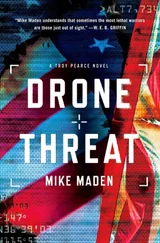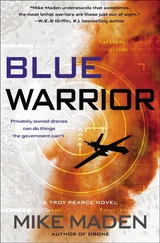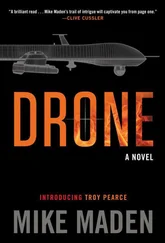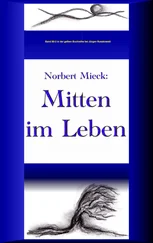“You’ve ridden camels before?” Mossa asked.
“Horses.”
“I rode an elephant once, in a circus near Tupelo,” Early said. “Cost me five dollars.”
“I should like to ride an elephant someday,” Mossa said as he mounted his own animal.
The camel driver and Mossa exchanged words. Mossa nodded, turned to Pearce.
“He would like to trade you for your rifle.” Mossa pointed at Pearce’s M4 slung over his shoulder.
“What’s wrong with his AK?” Pearce asked. “This thing is a little finicky in the sand anyways.”
“Mano likes the new M320 grenade launcher on it. He feels the side-loaded breech is superior to the previous model.”
Pearce smiled. “Man knows his stuff.”
“Mano Dayak is a dealer in such things. He can fetch a great price for that weapon back in Niger.”
“What would he give me for it?”
Mossa chattered a question. The driver answered.
“Two AKs and a camel of your choice.”
“Very tempting. Tell him I’ll think about it.”
The camel driver tapped Pearce’s camel with a crop and the animal’s rear end rose up. It felt like he was in the front seat of a downhill roller coaster. Pearce clutched the saddle with every ounce of strength in his thighs to keep from pitching forward, even though he was gripping the fork. A moment later, the camel stood on its front legs and leveled out. Pearce’s butt was nearly ten feet in the air. It seemed like twenty. He liked the view up there. But it also made him feel like a target.
The other riders all mounted their camels, and the animals rose on command. Mossa’s animal was blazingly white and the tallest by far, and the most ornately decorated. He prodded his camel with a commanding “Het-het ” and took the lead. Pearce’s fell in line automatically, no doubt by force of habit. The small caravan was headed for the endless yellow horizon. As strange as the last twenty-four hours had been, he couldn’t begin to imagine what the night might bring.
 40
40 
Adrar des Ifoghas
Kidal Region, Northeastern Mali
10 May
Three a.m.
The bodies lay where they fell during the day, cut down by gunfire, grenades, or land mines. Most had bloated, baking beneath the scorching sun all day. The burned-out hulk of a six-wheeled BTR stood upended where it had died, a hole blown in the bottom deck by an RPG as the vehicle crested the trench line, the crew turned to ash.
In all, Guo counted seventy corpses on his way up the mountain. The Mali troops were brave enough but poorly deployed, and even more dismally led. As far as he was concerned, they had been useful for mine clearing at best. The hard way.
The veil of moonlight and the blanket of stars provided more than enough ambient light for this new generation of night-vision equipment. Two of Guo’s best men advanced to either side of him, quiet as butterfly wings. They were all kitted out in the same black tactical uniforms and fully enclosed helmets. The uniforms were temperature controlled and the headgear completely covered their faces, ears, and mouths, much like a high-tech motorcycle helmet. Black flexible “smart glass” wrapped across their faces, fronted by double-barreled night-vision goggles. Each helmet’s enhanced audio provided another tactical advantage over their opponents in the dark. Guo’s command helmet also featured POV windows from the other two operators’ cameras, giving him additional tactical information.
The three men easily located the Tuareg lookouts on the ridge above, two men dozing off and two others whispering in low tones. Telling stories, judging by the way they laughed and smoked. From their distant observation post, Guo and his team had counted fifteen Tuareg fighters in the battle, not including the three that fell. That left eleven not visually confirmed. He was certain Mossa was still alive. Why else would the other brigands remain behind?
His orders were clear. Kill Mossa, capture Pearce. That wouldn’t be easy, but glory was only glorious because it was hard-won. Thankfully, Guo had another tactical advantage to deploy. He blinked an order in his command window and the other two men halted, then took cover. They were just a hundred meters from the ridge.
Guo pulled a cylinder from a vest pocket and emptied the contents on the ground. Pulled a controller from another pocket. A hundred Madagascar hissing roaches scurried up the hill. Each of the giant cockroaches was fitted with cameras and sensors and steered with controls wired to their abdominal sensory organs and antennae. Software auto-piloted them to find warm bodies. Guo and his team tracked their movements and location on the helmeted smart glass.
Originally developed for search and rescue in collapsed buildings, the bio-bot roaches were excellent surveillance tools in war. Dr. Weng’s lab found that using living insects offered numerous advantages over manufactured ones. They had been designed, perfected, and field-tested over millions of years by Nature herself. The best humans could do was mimic natural systems. Weng found that the problems of propulsion, fuel, and load bearing were still overwhelming for miniature human-manufactured insects like mosquitoes and spiders. Even when they were successfully built, their range and payload capabilities were negligible. Retrofitted cockroaches provided a naturally selected, high-tech solution. It was only a matter of time before the hawk drones would be replaced with real ones controlled remotely, too.
Thirty minutes later, the bio-bots had located fifteen warm bodies. It was too dark in most of the caves for the roach cameras to function properly, so it wasn’t clear where Mossa and Pearce were located. Mossa’s death was imperative. Pearce’s capture was secondary. The three operators separated, moving into positions, dividing up targets. Guo gave the signal.
Suppressors muted the bark of their automatic rifles. Single shots took down the first three Tuaregs. Grenades tossed behind boulders took out four others. The team advanced up the hill. Guo fired a grenade launcher throwing flash bangs. Two more Tuaregs dropped, clutching their ears, until Chinese bullets shattered their brainpans. Guo and his men finally crested the hill. The remaining Tuaregs were clustered in two caves. No easy way to get them out. Guo pulled a white phosphorus grenade and tossed it into the first cave. When the phosphorus was exposed to the air, it flashed a brilliant white light and caught fire. A Tuareg leaped out of the cave enveloped in unquenchable flames, screaming. Guo’s men let him pass. A second came out, clothes ablaze, gun firing. He was cut down, but not before putting a round into the smart glass of one of his men. The operator’s POV video image on Guo’s command screen went black.
According to Guo’s display, there were still three people left in the first cave, and six more in the next, ten meters ahead. Guo dashed for the second cave and tossed another WP grenade. More screams.
WHOOSH! An RPG screamed out of the black maw of the cave and roared over Guo’s head. He dropped to the ground reflexively. Good thing. Bullets spanged into the rock just behind him. Had he remained standing, he would have been cut in half. His comrade called, two more down.
BOOM! A grenade went off ten meters behind him. His second video screen went blank. His last comrade down. Guo laughed, battle-crazed. This is how heroes died, he told himself. He tossed another flash bang into the cave, waited for two seconds for the flash to pass, then tossed in a conventional grenade. It thudded. Guo dashed in, gun blazing. Bullets tore high into the chest of a man against the far cave wall trying to raise a rifle. The other four were already dead.
Читать дальше
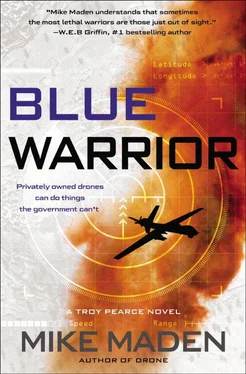
 40
40 
